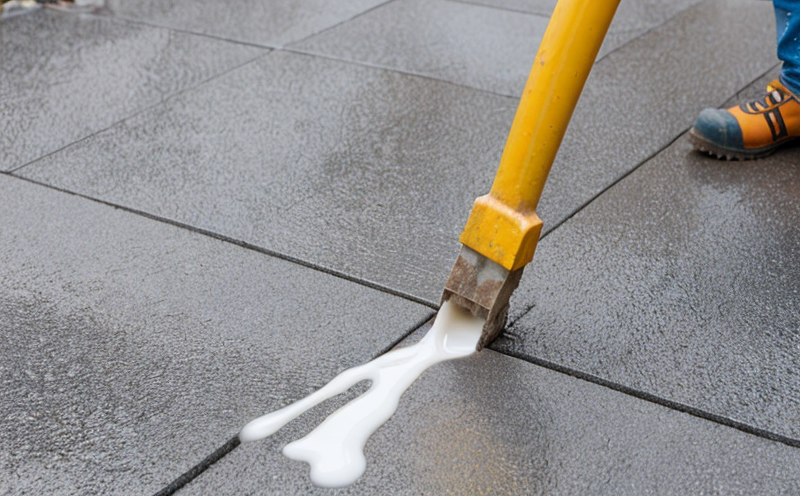Moisture resistance of sealants in construction applications
The Importance of Moisture Resistance in Sealants Why Eurolabs Laboratory Service is a Game-Changer for Construction Applications
As the construction industry continues to grow and evolve, one critical aspect that cannot be overlooked is the moisture resistance of sealants. Sealants play a vital role in ensuring the integrity and durability of building structures by providing a tight seal between different materials and components. However, when exposed to moisture, sealants can fail, leading to costly repairs, water damage, and compromised structural safety.
In this article, we will delve into the importance of moisture resistance in sealants for construction applications and explore why Eurolabs laboratory service is an essential tool for businesses looking to ensure the longevity and performance of their building materials.
What is Moisture Resistance in Sealants?
Moisture resistance in sealants refers to the ability of a sealant to withstand exposure to moisture without compromising its integrity or effectiveness. This includes resisting water penetration, maintaining flexibility and elasticity, and preventing degradation or deterioration due to humidity, rain, or other forms of moisture.
Why is Moisture Resistance Essential for Construction Applications?
The consequences of inadequate moisture resistance in sealants can be severe and far-reaching
Structural Damage Water ingress can lead to structural damage, compromising the integrity and safety of a building.
Material Degradation Exposure to moisture can cause sealants to degrade, leading to cracks, leaks, and other forms of damage.
Health Risks Mold growth and water-borne contaminants can pose health risks to occupants, particularly in sensitive environments such as hospitals or schools.
Financial Losses Repairs and replacements due to sealant failure can be costly, not to mention the loss of revenue resulting from building downtime.
Advantages of Moisture Resistance in Sealants
Eurolabs laboratory service offers a comprehensive analysis of moisture resistance in sealants, providing businesses with valuable insights into their products performance. The benefits of using Eurolabs service include
Improved Durability By evaluating the moisture resistance of sealants, businesses can ensure that their products meet or exceed industry standards for durability and performance.
Enhanced Safety Moisture-resistant sealants reduce the risk of structural damage, material degradation, and health risks associated with water ingress.
Increased Efficiency With Eurolabs service, businesses can identify potential issues early on, preventing costly repairs and replacements down the line.
Compliance By demonstrating compliance with industry standards for moisture resistance, businesses can maintain their reputation and avoid regulatory non-compliance.
Key Benefits of Using Moisture-Resistant Sealants
Eurolabs laboratory service helps businesses to
Extend Service Life Moisture-resistant sealants ensure that building materials perform optimally over time.
Reduce Maintenance Costs By minimizing the need for repairs and replacements, businesses can save on maintenance costs.
Improve Building Resilience With moisture-resistant sealants, buildings are better equipped to withstand extreme weather conditions and environmental stressors.
Enhance Property Value Properties with moisture-resistant sealants command higher resale values and rental income.
QA Frequently Asked Questions about Moisture Resistance in Sealants
Q What is the importance of testing for moisture resistance in sealants?
A Testing for moisture resistance ensures that sealants meet industry standards, prevent water ingress, and maintain their integrity over time.
Q Can I conduct my own tests for moisture resistance in sealants?
A No. Conducting your own tests can be inaccurate and unreliable. Eurolabs laboratory service provides a comprehensive analysis using state-of-the-art equipment and expert technicians.
Q What types of sealants are suitable for different construction applications?
A Different sealant materials are suited to various construction applications, including butyl rubber, silicone, polyurethane, and acrylic. Eurolabs experts can help select the most suitable sealant for your specific needs.
Q How often should I conduct tests for moisture resistance in my sealants?
A Tests should be conducted regularly, ideally after installation, during construction, and periodically thereafter to ensure that sealants continue to meet industry standards.
Conclusion
In conclusion, moisture resistance is a critical aspect of sealant performance in construction applications. Eurolabs laboratory service provides businesses with the assurance that their sealants meet or exceed industry standards for durability and performance. By leveraging Eurolabs expertise, businesses can
Improve building resilience
Reduce maintenance costs
Enhance property value
Ensure compliance with industry regulations
Dont compromise on moisture resistance choose Eurolabs laboratory service to safeguard the integrity of your construction projects. Contact us today to learn more about how our services can benefit your business.
About Eurolab
Eurolab is a leading provider of laboratory services, dedicated to delivering high-quality results and expert analysis for businesses across various industries. With state-of-the-art equipment and a team of experienced technicians, Eurolab offers a comprehensive range of testing and certification services, including moisture resistance in sealants. Trust Eurolab to help you achieve your business goals get in touch with us today!




